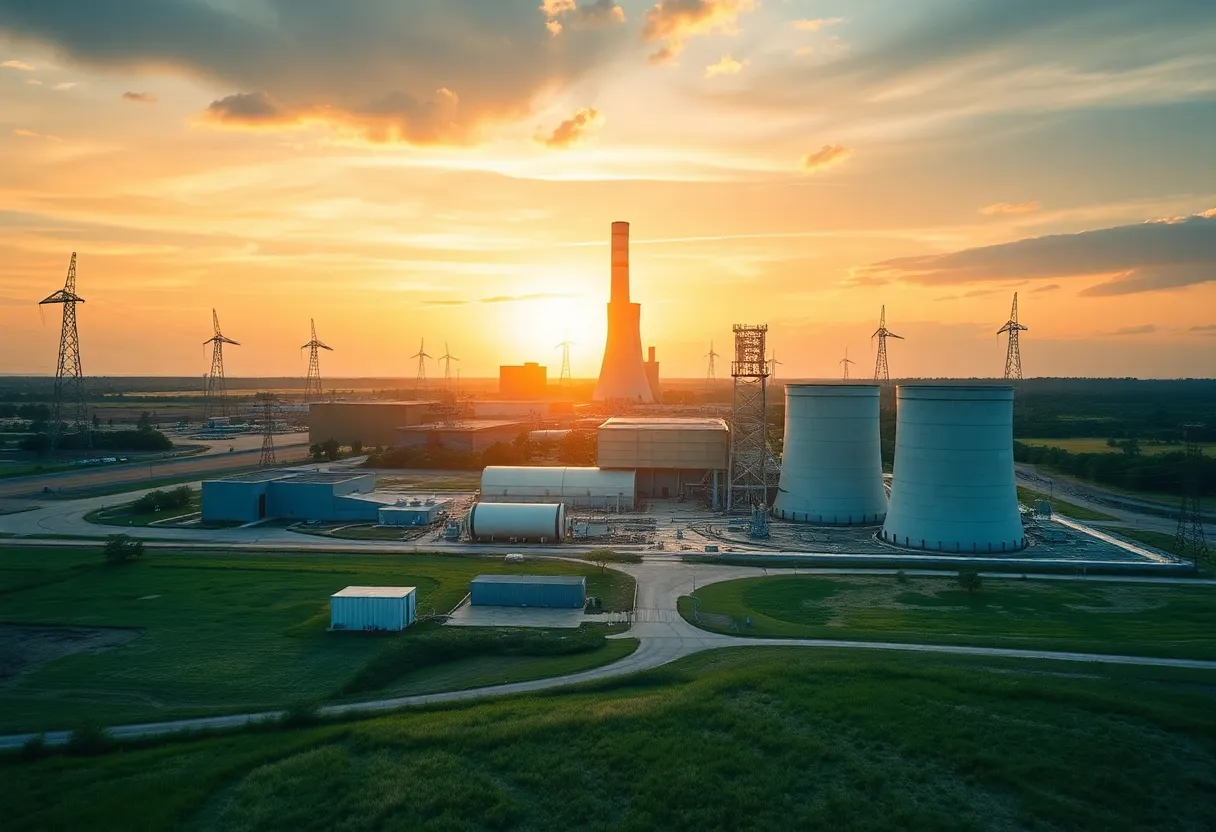

Advanced Nuclear Power in Texas
Texas lawmakers have passed House Bill 14, establishing a $350 million grant program to attract the advanced nuclear industry. This initiative aims to position Texas as a global leader in advanced nuclear power, fostering innovation and economic growth while addressing rising electricity demands. However, environmental concerns regarding taxpayer funding and radioactive waste management pose challenges for the new program.
Texas lawmakers have approved House Bill 14, establishing a $350 million program aimed at attracting the advanced nuclear industry through taxpayer-funded grants. This funding represents the largest national commitment for nuclear projects, although it falls short of the initial $2 billion sought by the industry.
Governor Greg Abbott’s objective is for Texas to become the global leader in advanced nuclear power. The approved funding aligns with recommendations made by the governor’s advanced nuclear working group. To ensure the effective management of this initiative, a Texas nuclear energy office will be established within the governor’s office. This office will oversee the funding program and will assist companies in navigating the state regulations related to nuclear projects.
Within the nuclear sector, there is a palpable excitement regarding the successful funding. Industry leaders anticipate forthcoming announcements from companies planning to develop nuclear reactors in Texas. Advanced nuclear technology encompasses small modular reactors (SMRs), which proponents claim are easier and less costly to construct than traditional reactors. However, it is noteworthy that no commercial SMRs have been deployed in the U.S. as of yet.
Proponents of the funding estimate that Texas could see investments amounting to tens of billions of dollars, potentially creating hundreds of thousands of high-paying jobs supported by state funding. This growth is seen as increasingly necessary, given the projected 70% jump in electricity demand by 2031, driven principally by large energy consumers such as data centers. Increasing the state’s nuclear output is viewed as essential to reducing climate-warming emissions.
Despite the enthusiasm surrounding the funding, several Texas environmental groups oppose the use of taxpayer dollars for nuclear companies, warning against the industry’s history of overstating potential outcomes. Following negotiations, the funding request was trimmed down from an initial $2 billion to $750 million, before ultimately being approved at $350 million.
Critics of the funding structure have advocated for loans instead of grants as a preventive measure against what they perceive as “giveaways” to nuclear companies. The approved program includes provisions for reimbursement relating to project development and supply chain activities, in addition to construction costs. Companies can receive grants up to $12.5 million for project development and up to $120 million for construction, contingent on their adherence to specific project milestones.
Furthermore, the lieutenant governor and Texas House speaker hold the authority to veto grant approvals. This oversight aims to ensure that funds are allocated efficiently and effectively within the framework of the program.
Concerns persist regarding the safe management of radioactive waste generated by nuclear reactors. These issues are compounded by ongoing legal challenges associated with nuclear waste management within Texas, which raises questions about the long-term viability of nuclear energy in the state.
Experts from the legal and regulatory fields underscore the necessity for nuclear companies to demonstrate their capabilities through concrete steps towards actual reactor construction. There is a consensus on the importance of accountability in this emerging sector, especially considering the substantial federal and state investments involved.
As Texas pushes forward with this initiative, it remains a point of contention whether future legislative sessions may enhance or augment the approved funding for nuclear energy advancements. The road ahead for Texas’s nuclear ambitions continues to be watched closely by both supporters and critics alike.
News Summary The Council for South Texas Economic Progress (COSTEP) has launched a digital platform…
News Summary North Carolina has achieved the top spot in CNBC’s Best States for Business…
News Summary Texas businesses are grappling with the fallout of escalating U.S.-China trade tensions, with…
News Summary Leander, Texas is enhancing its collaboration with Travis County to address flood relief…
News Summary Williamson County, Texas, has been included in the updated Presidential Disaster Declaration by…
News Summary The heartbreaking death of 20-year-old Sayfollah Musallet, a Palestinian-American, has ignited calls for…